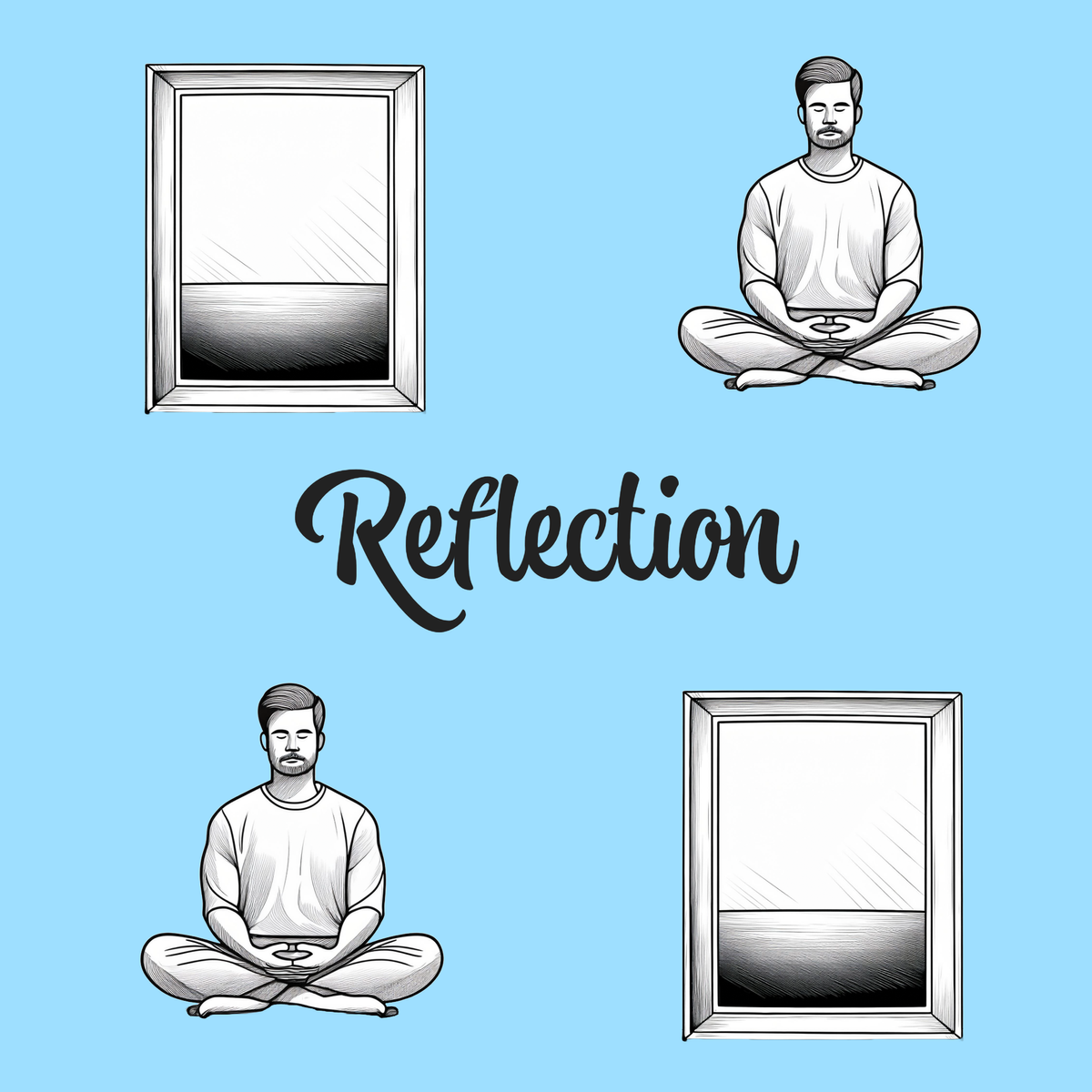From Stuck to Self-Aware: Why Reflection is Key to Growth

Hi Team,
By making the time for regular reflection sessions, you can boost growth and ensure that you stay aligned with your goals. Placing reflection sessions in your calendar can also lead to greater self-awareness, clearer goal setting, and personal accountability. If you have ever felt stuck, lacking direction, or struggling with productivity, then consistent reflection could be the solution.
Appreciation of Reflection as a Skill
Reflection is an active process which requires you to look back and attempt to understand and/or learn from past experiences. Reflection should be considered as a skill that we develop over time and not just a one-off series of actions that we occasionally take. If we can build a consistent pattern of reflection, we can aim to build upon two different forms of reflection; retrospective and introspective.
- Retrospective Reflection = Reviewing past actions and outcomes.
- Introspective Reflection = Evaluating thoughts and emotions.
The Key Benefit of Reflection
As we look to develop our motivation to practice reflection, it is useful to have an overview of the key benefits from reflecting regularly:
- Enhanced self-awareness = Reflection helps to identify strengths, weaknesses, habits, and emotional triggers, all of which offers a starting point to recognising areas for improvement.
- Learning from experience = Every day we will have experiences which have the potential to help our growth. The best way to ensure that any successes and failures can be built upon is to engage in those moments and reflect on how to make the positives happen again and avoid the negatives being repeated.
- Clarifying values and priorities = Creating a regular reflection habit ensures that day-to-day actions can be considered against long-term goals, ensuring that you keep on the right path.
- Improving decision-making = Regular reflection leads to better insights, from which we can improve our decision-making in the future, by utilising past experiences.
Practical Reflection Techniques
The below practical steps are a good starting point for reflection:
- Journaling = Starting a daily, or at least weekly, journaling habit is a good way to get experiences, emotions and reflections out on paper. Either write freeform or look to find prompts to guide your writing.
- Meditative Reflection = Aim to spend a few minutes each day in quiet contemplation, assessing the feelings you are having, as well as placing a focus on recent experiences.
- Review and Assessment = This can be done within your journaling or meditative reflection, but look to answer questions of “What went well? What hasn’t gone well? What’s next?”.
- Visualise and Rewrite = Consider recent experiences, emotions, and actions that you have taken. Consider how different choices may have altered this situation, as a way to review and learn from past experiences.
Creating a Reflection Routine
Look to build your reflection routine at the same time every day or every week. This can be any time of the day, but the key is to find a consistency that works for you. A useful way to find this consistency is to latch the habit of reflection onto an activity that is already a constant in your day, such as a meal or before going to bed.
When it comes to frequency, daily reflection is great for small considerations, whilst weekly can look at larger patterns across the previous day. Make a note that monthly or quarterly, your reflections should be for big-picture insights.
Closing Remarks
Constant reflection is an important part of the path towards intentional growth. Utilise the practical tips found in today’s newsletter, but also consider experimenting with new techniques for reflection that fit into your personal style. What’s the one thing you would like to reflect on today?
Did you enjoy what you read? Don’t miss out on weekly tips like these—subscribe now to stay on top of your personal growth journey.
